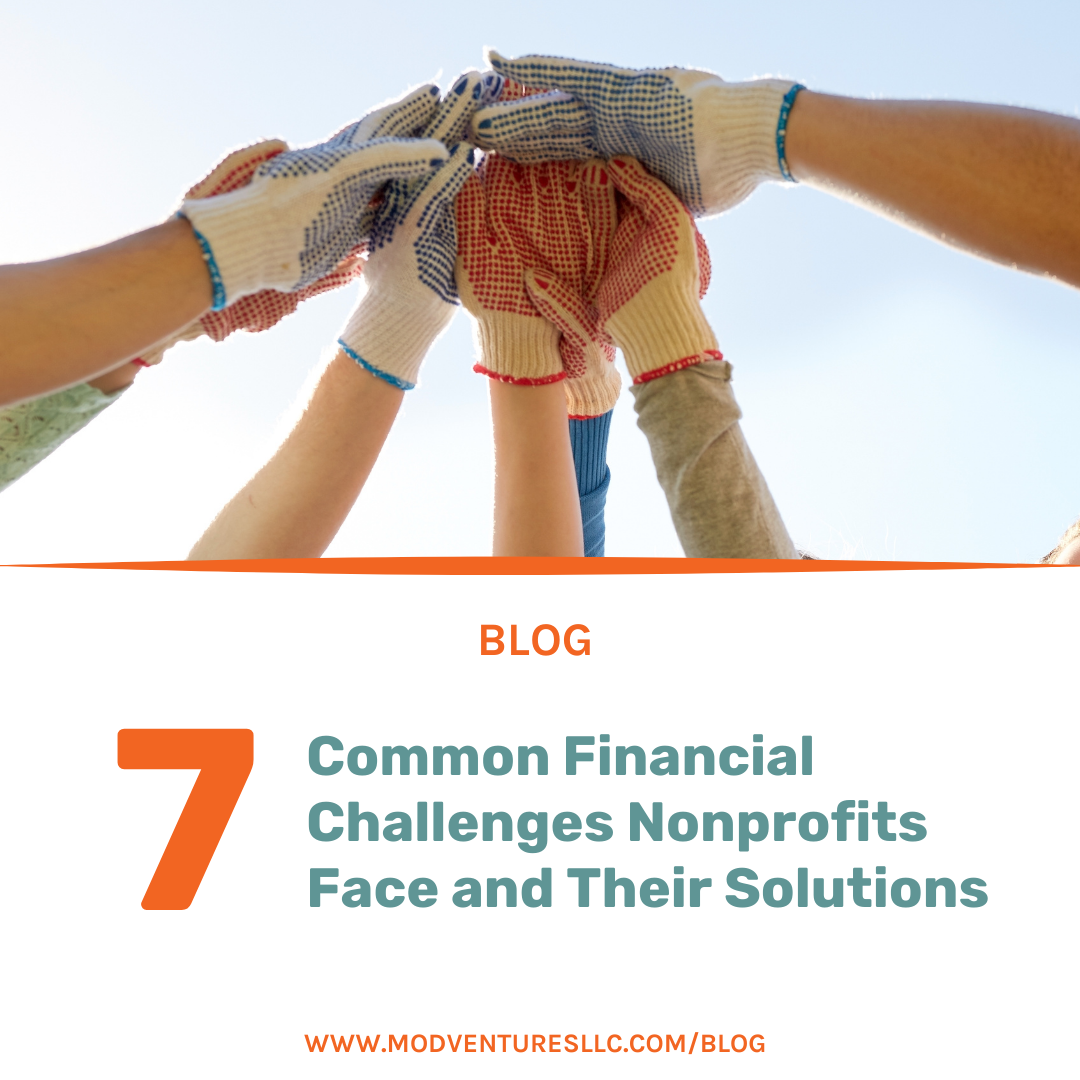
7 of the Most Common Financial Challenges Nonprofits Face and What to Do About Them
September 11, 2024
By: Gabrielle Luoma CPA, CGMA
By: Gabrielle Luoma CPA, CGMA
Nonprofit organizations play a vital role in our communities, but managing finances can be a significant hurdle. From fluctuating funding to complex compliance requirements, nonprofits face unique financial challenges that can impact their ability to serve their mission.
Understanding how to address these challenges is crucial for any nonprofit seeking financial health and sustainability. Here are seven of the most common financial challenges nonprofits face and strategies for overcoming them.
#1. Fluctuating Funding Sources
One of the biggest challenges nonprofits face is the unpredictability of funding. Donations, grants, and fundraising events can fluctuate seasonally or be impacted by economic changes, leaving nonprofits with gaps in their budgets.
What to Do: Diversify your income streams to mitigate the risk of fluctuating funding. Relying on one primary source of revenue can be risky, so explore opportunities such as corporate sponsorships, individual donations, grants, fee-for-service programs, and earned-income ventures. Building a reserve fund to cover periods of low income can also help maintain stability during tough times.
#2. Limited Cash Flow Management
Cash flow issues are common for nonprofits, particularly those that depend on grants or donations that may not arrive in time to cover immediate expenses. Poor cash flow management can result in delayed payments, unmet obligations, and financial strain.
What to Do: Implement a cash flow management strategy that includes regular forecasting and monitoring of income and expenses. Create a cash flow projection to anticipate periods of low cash availability and plan accordingly. Additionally, consider setting up a line of credit to provide a financial cushion during cash flow crunches.
#3. Inadequate Financial Reporting
Accurate and timely financial reporting is critical for making informed decisions and maintaining donor confidence. However, many nonprofits struggle with financial reporting due to outdated systems, lack of expertise, or incomplete data.
What to Do: Invest in financial management software tailored to nonprofits that can automate reporting and improve accuracy. Training staff or engaging professional accountants with nonprofit experience can also enhance your financial reporting capabilities. Regularly review your reports to ensure they provide meaningful insights into your financial health.
#4. Compliance with Financial Regulations
Nonprofits must adhere to various financial regulations, from tax compliance to grant reporting requirements. Failing to comply with these regulations can lead to fines, loss of funding, and damage to your organization’s reputation.
What to Do: Stay informed about the regulations that apply to your nonprofit and ensure your financial practices align with them. Consider working with an accountant or financial advisor who specializes in nonprofit compliance. Regular audits and reviews of your financial processes can also help identify and address compliance issues before they become problems.
#5. Dependency on Restricted Funds
While essential, restricted funds can sometimes limit a nonprofit’s ability to respond flexibly to immediate needs. These funds are earmarked for specific purposes, so they can’t be used for general operating costs or unexpected expenses.
What to Do: Actively seek unrestricted funding through individual donations, membership programs, or unrestricted grants. Communicate clearly with donors about the importance of unrestricted gifts and how they allow your organization to respond quickly to urgent needs. Building relationships with funders who understand the value of unrestricted support can also make a big difference.
#6. Insufficient Budgeting Practices
Many nonprofits struggle with creating realistic and flexible budgets that reflect their financial needs and goals. Poor budgeting can lead to overspending, missed opportunities, or an inability to meet operational demands.
What to Do: Develop a comprehensive budgeting process that involves input from multiple departments and stakeholders. Use historical data to guide your budget projections and adjust regularly as financial conditions change. Incorporate contingency plans to address unexpected expenses and ensure your budget aligns with your strategic goals.
#7. Difficulty in Sustaining Long-Term Financial Health
Ensuring long-term sustainability is a constant challenge for nonprofits, especially those that face ongoing funding uncertainties and rising costs. Without a clear financial strategy, many nonprofits find themselves in a cycle of financial instability.
What to Do: Focus on long-term financial planning by developing a strategic financial plan that includes goals for revenue growth, expense management, and reserve building. Regularly assess your financial health and adjust your strategies as needed. Engaging your board in financial planning discussions can provide additional insights and support in achieving long-term stability.
Navigating Common Financial Challenges in a Nonprofit
Navigating financial challenges is a critical aspect of running a successful nonprofit. By understanding the common financial obstacles and implementing proactive strategies, your organization can improve its financial health and focus on fulfilling its mission.
If you need further guidance or personalized advice on managing your nonprofit’s finances, consider consulting with a financial expert specializing in nonprofit management. Book a call with MOD VENTURES LLC to get started today!
You May Also Love
CLOSE





